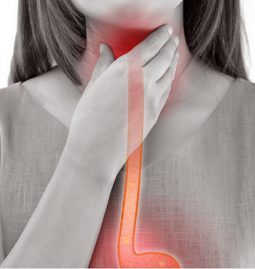Knowing what to expect can sometimes ease the anxiety of starting something new. This is true for a person starting their recovery journey at a rehabilitation center. This article provides a basic outline of what a typical day in a drug rehab center might look like. Remember that everyone’s journey towards recovery is exclusive. Their tailored treatment plan will also be individual-specific to their needs. This article provides a general outline, and individual experiences may vary slightly.
Morning: Setting the Scene for the Day
Your day in rehab will start early, with a wake-up call followed by breakfast. Your morning sets the groundwork for the rest of the day.
- Meditate and Exercise: After eating, you would typically engage in calming activities like yoga or meditation. These activities are geared towards enhancing your mental health.
- Therapeutic Sessions: Following exercise, the itinerary usually includes group therapy. Professionals in charge of treatment conduct sessions focusing on recovery themes.
You would also learn about substance dependency and the tools necessary for recovery. These structured activities are designed to bring predictability into your life and foster a disciplined lifestyle.
Afternoon: Intensive Therapies and Counselling
Afternoons in rehab are typically the most intense part of the day. It usually consists of different treatment options tailored to fit your needs.
- One-on-One Therapy: You will often have individual therapy sessions. This therapy allows you to work on the underlying issues at the heart of your drug or substance misuse.
- Group Therapy: Regular group sessions allow you to connect with others in rehab. Here, you will find peer support and learn from other group member’s recovery processes.
These sessions provide a platform to share and learn from shared experiences. If you are considering treatment in Tampa Bay, a highly-regarded option is the Tampa Bay Recovery Center.
Evening: Relaxation and Reflective Therapies
The evening routine generally involves less intensive activities. This time is set aside for you to relax and rejuvenate.
- 12-step Meetings: A lot of rehab centers carry out 12-step meetings or similar recovery group sessions in the evenings. This helps you to share experiences and form bonds with fellow residents.
- Personal Time: Some of the evening is usually left open for leisure. You can use this time for reflection, journaling, or other hobby-related activities.
These evening activities help to wrap up the day while maintaining engagement in the recovery process. For those dealing with alcohol addiction, an excellent option for treatment is the alcohol rehab in Tampa.
Night: Winding Down
After a long day, the rehab center would usually have a set bedtime. Getting enough sleep is critical to the process of recovery.
Good sleep helps the body fight off withdrawal symptoms. It also counters mental health problems that might arise. Additionally, maintaining a decent sleep schedule allows the body to remain on track with the routines set during the day.
For added insight on this subject, it would be good to learn more about rehab from various resources.
Life After Rehab
Finishing your rehab program does not mean the end of your recovery plan. Quite the contrary, it is only the launching pad for a new life. A life that, yes, still involves battling addiction. But this time, equipped with all the skills and tools acquired during your time in rehab.
- Continued Therapy: Just because you’ve completed your rehab doesn’t mean therapy should stop. Regular attendance at therapy sessions and support group meetings can help you immensely in maintaining sobriety.
- Maintaining a Healthy Lifestyle: Your physical health matters as well. Regular exercise and balanced meals nourish your body. Healthy sleep habits restore your energy. All of which contribute to stress management and general well-being.
It’s crucial to remember that recovery doesn’t end with rehab. It’s a day-by-day journey. Each day fills you with more power, and more determination to stay sober. And every single day, you’re one step closer to your ultimate goal: a life of sobriety and freedom from the clutches of addiction.
To put it simply, you’ve worked hard in rehab. Now, all you need to do is keep that momentum going. With continued therapy, a healthy lifestyle, and daily commitment, maintaining the sobriety you fought for becomes less overwhelming. It keeps you grounded and reminded of the hard-won battle against addiction. With your learnings in rehab and the tools and skills you’ve been given, this lifelong journey becomes manageable and fulfilling.
- Continued Therapy: Still go to therapy, even after completing rehab. Therapy provides much-needed support as you navigate through life after rehab. It reinforces the skills you’ve acquired during your rehab program and helps you better handle feelings of anxiety or depression that might trigger a relapse.
- Maintaining a Healthy Lifestyle: Your physical health is just as important as your mental health. It’s crucial to follow a routine involving regular exercise, nourishing meals, and good rest. It aids in stress management, which helps avoid triggers and cope much more effectively with cravings.
Remember that your journey to recovery isn’t an event but a process. It’s a spiral stair where every day, you ascend a step closer to your goal of long-term recovery and a healthier life. Remain patient with yourself. Each day is a victory worthy of recognition.
Wrapping Up
While the above-mentioned schedule provides a general idea of what a day in rehab might look like, it’s crucial to remember that everyone’s journey is different. Your experience at the rehab center will be distinctive and fluid, catering to your specific needs. There is no one-type-fits-all program. You will work with your therapist to develop an individually tailored plan that best suits your recovery journey.




